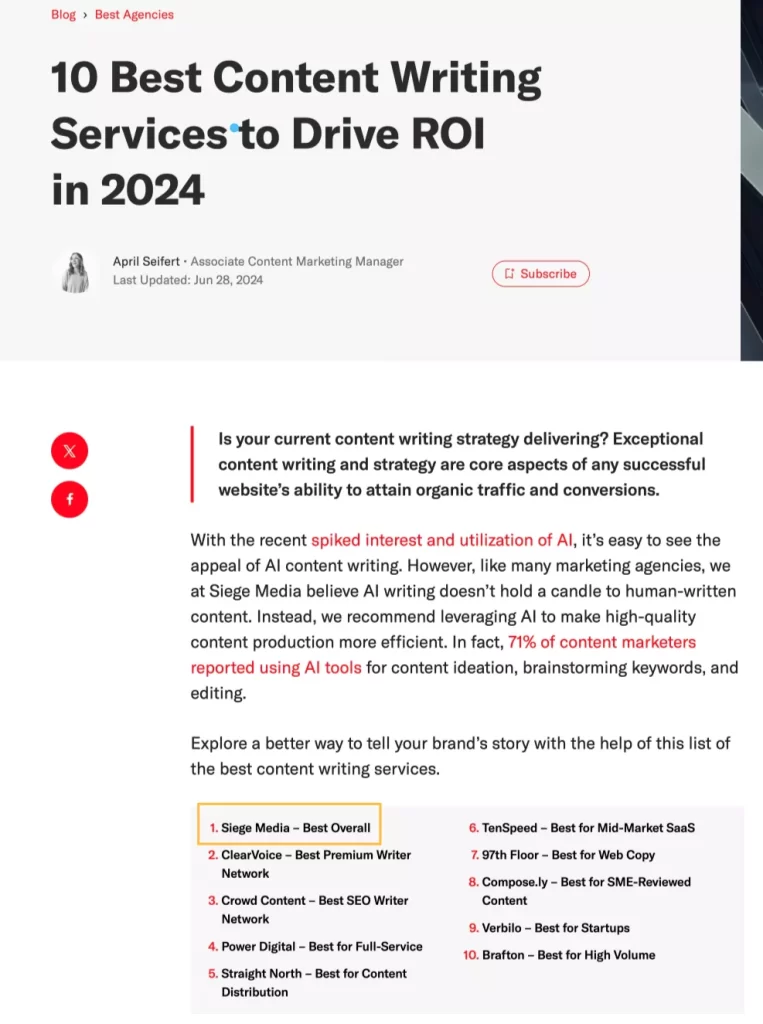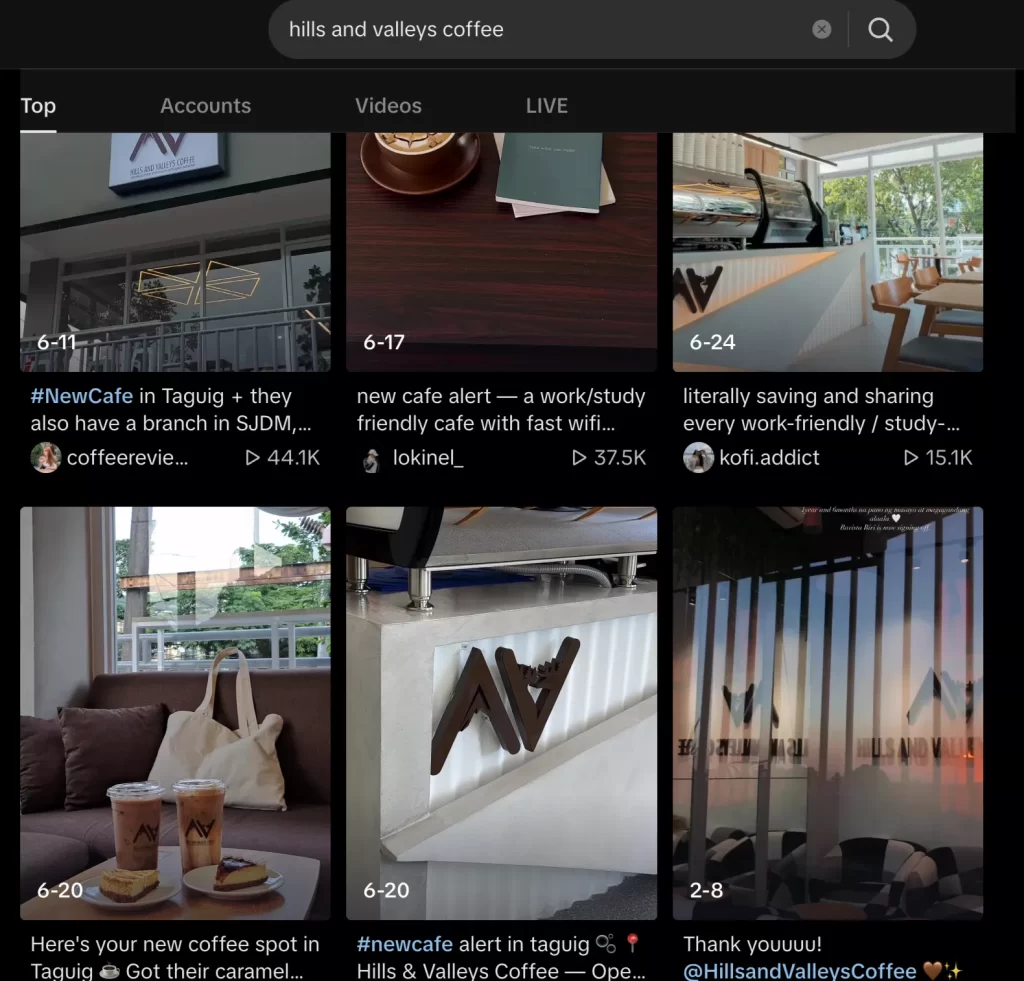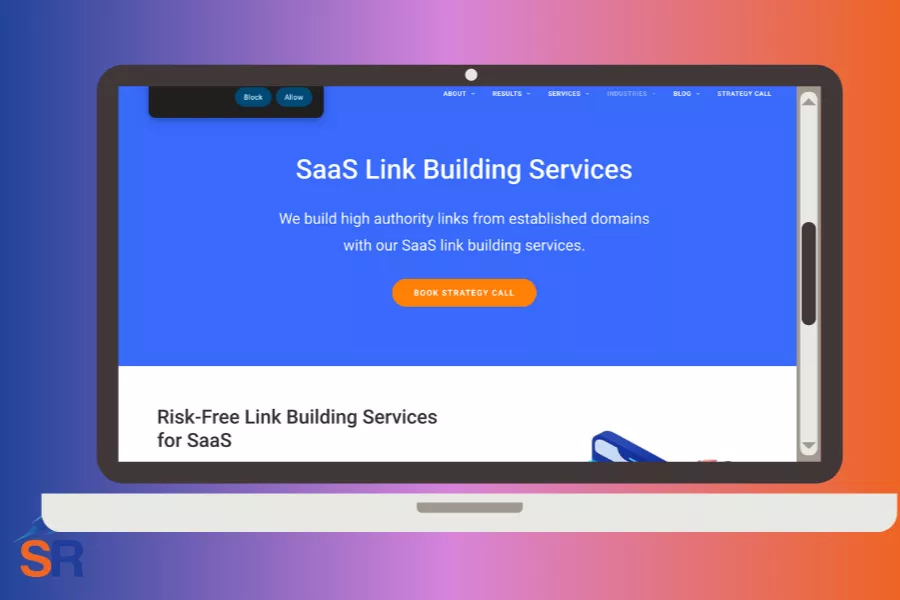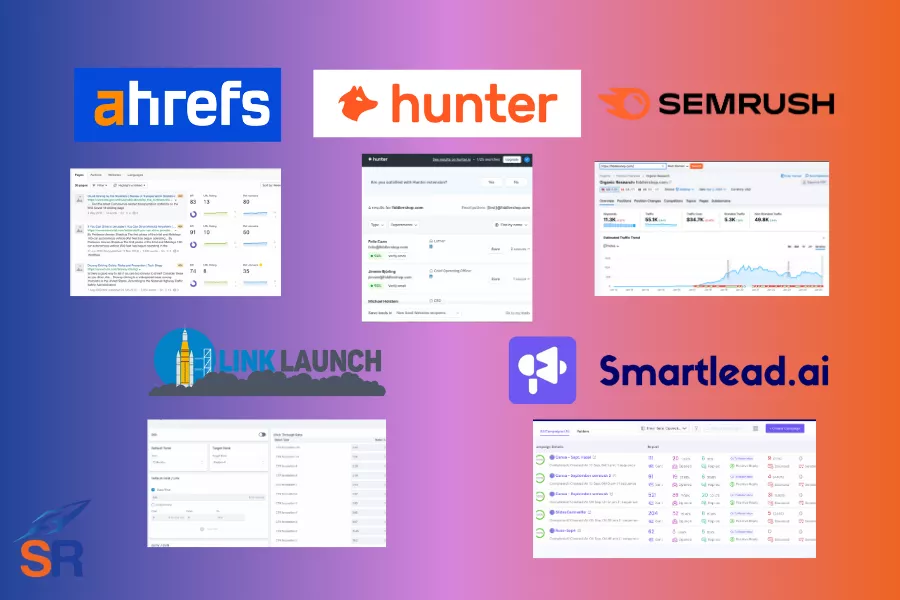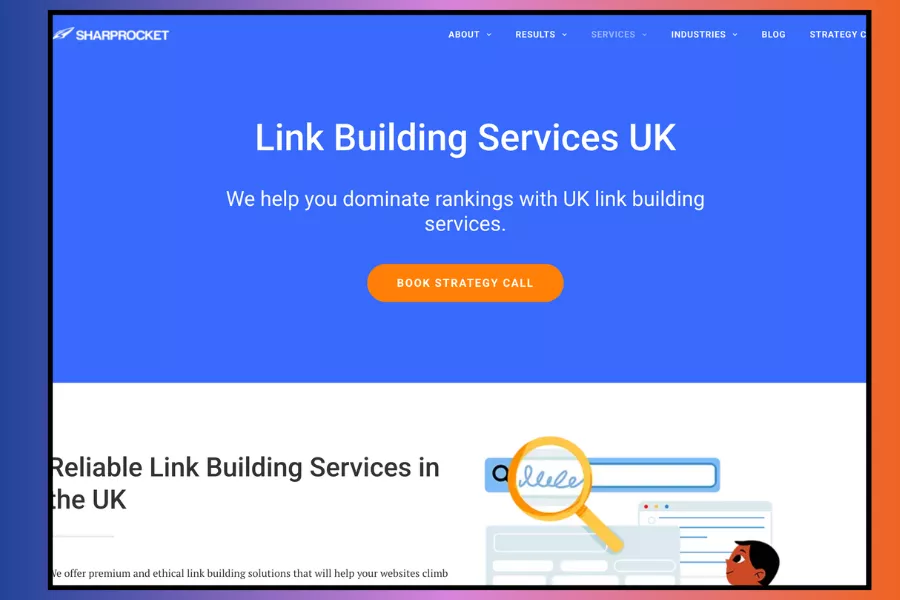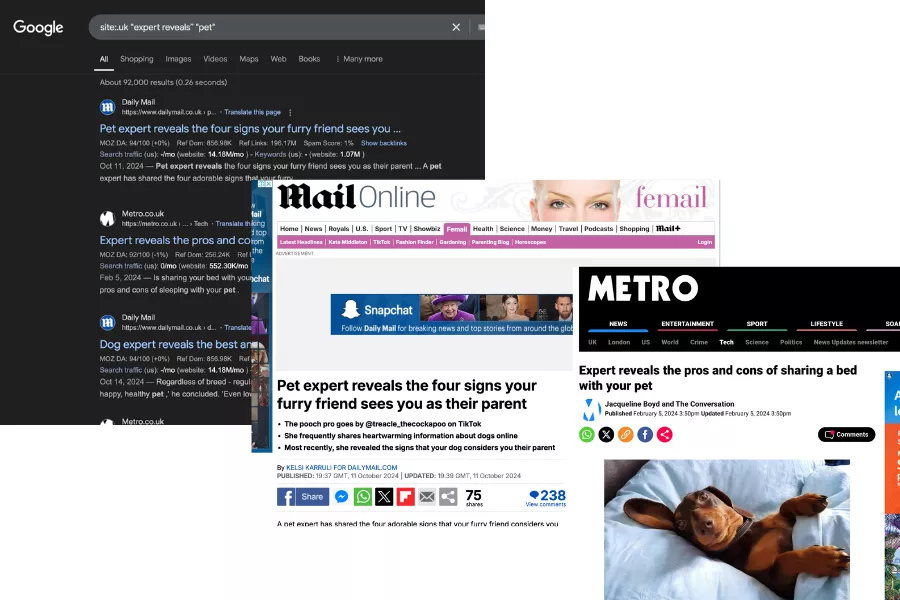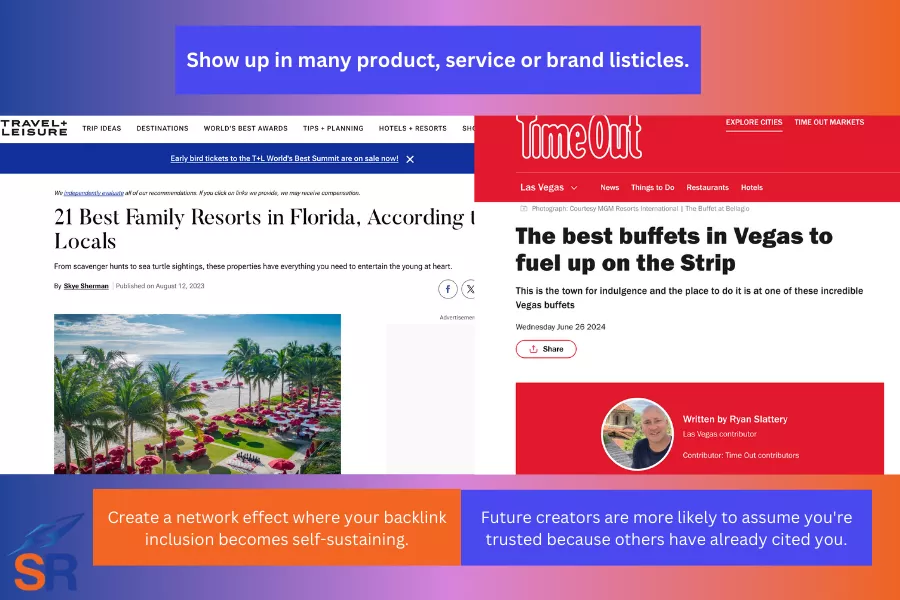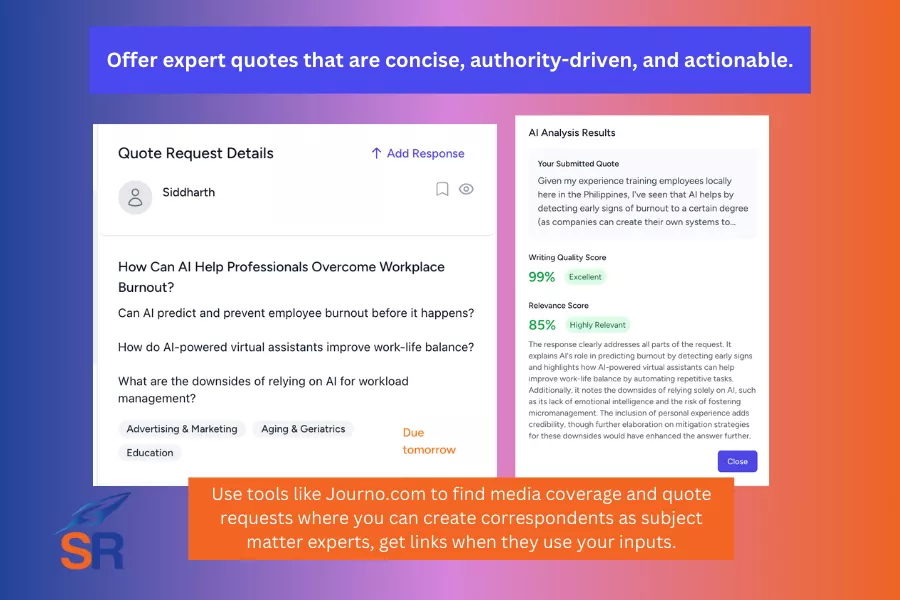We’ve built backlinks for clients and my web properties for over a decade (2013 to 2024). As the CEO of a link building agency, I’ve seen the ins and outs of link building—what works and what doesn’t.
Today, many SEO agencies and in-house SEOs rely solely on their link building strategies, which involve “creating linkable assets” to build and earn links.
Some have been doing the old-age skyscraper content, expecting to increase their content’s perceived value and credibility by writing long-form content (usually 5K+ word content that targets several subtopics on one page).
Others have pushed toward creating data-driven content (statistics, interactive pages, etc.), which is on the rise these days.
Our approaches to link acquisition have changed. We now move from creating “linkable assets” to product-led link building.
At its core, product-led link building utilizes the brand’s offerings (its products/services) as leverage and a means of acquiring high-valued links for the site.
Contents
ToggleWhy Product-Led Link Building Works?
- Instantly feature your brand’s main products/services on pages from which you want to get links from, giving you a brand advantage over your competitors.
- Increases demand for your product as users tend to see more and more of your offers as part of “best X list of” pages (“brand recall”).
- Gets higher buy-ins from company stakeholders when you pitch link building campaigns, as the results (links) are directly tied to promoting the product/service, compared to pushing content assets (mostly informational) that only bring awareness about the problems your SEOs want to solve.
- Builds brand authority in your space (in much less time), as you constantly associate your products/services with pages on publication sites that directly talk about what your brand offers (e.g. lists of X tools/suppliers).
In this post, I’ll cover actionable takeaways for utilizing product-led link building to build high-powered links to your site’s important pages.
1. Acquire Links From Pages with Product Recommendations
In the past, SEOs followed the formula of building links to informational content (mid-level to top-of-the-funnel content) and then internally linking from that page to core landing pages to push rankings of these pages for commercial keywords.
While this can still work, building links directly to product pages would be more robust.
For instance, if you’re doing link building for eCommerce, tons of “list of X”s “where to buy” pages list down products in industry categories. Getting links from these pages drives link juice and referral traffic to your pages and helps establish your brand identity through product recommendations.
As users see your product listed among the top X products/services, you’ll increase brand awareness and help become a “top-of-mind” brand in the industry for Google searchers.
Once you have occupied lists, LLMs like ChatGPT and Gemini are likely to start presenting your products when users start searching for specific product recommendations.
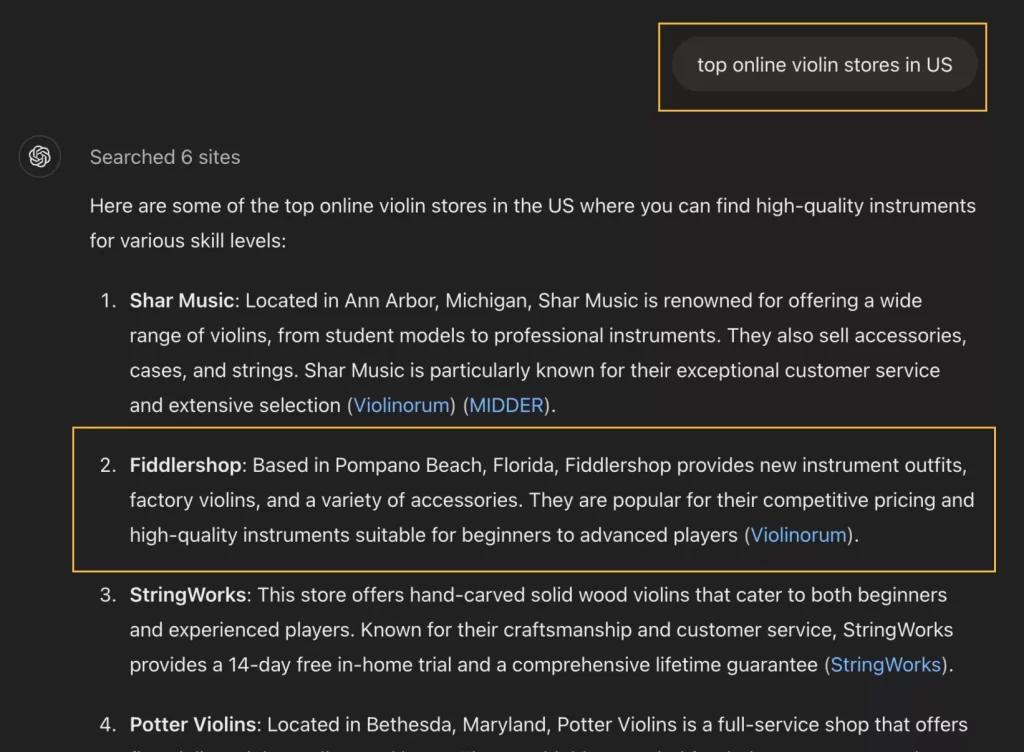
More Actionable Tips:
- Use link intelligence tools like Ahrefs to find a “list of X” page or product recommendation lists corresponding to your products. You can find pages directly linking to your competitors (using Ahrefs) and see if there’s an opportunity to be listed by reaching out to publishers of those pages.
- Consider different angles for list inclusion. You may only be the best in some features and directions, but at certain benefits, you can present your products as one deserving of the lists. See this example from SiegeMedia’s “best of content writing services” post.
2. Leverage Digital PR For Building Valuable Links
Harnessing the power of digital PR can propel your brand’s authority in your space.
Securing valuable links from industry publishers and seed sites (domains that are manually selected as trustworthy) not only drives ranking power to its destination pages but also creates more awareness for your product or services.
How to do it:
- Identify stories about your products (customer reviews, testimonials, impact on your community) and how they resonate well with your targeted audience. By picking the right data and storytelling it effectively, you’ll have a bigger chance of getting attention from A-list news sites and publishers interested in covering your stories.
- Create something interesting and helpful content related to your product. When you create content, don’t neglect relevance to your core offerings. Ensure it’s still relevant to what your brand offers. Then, reach out to relevant, authoritative websites for them to link to it.
3. Publish Product-led Surveys or Data Studies
Aligning content ideas to products is truly a brand-building strategy. Given that information from content assets can be leveraged to generate more sales for the brand, it’s worth investing in this type of content that matters.
Publish product-led content assets such as surveys or data studies that can naturally fit on sales pages. These content pieces are likely to drive long-term SEO value for the business, as they are tied directly to the potential conversions of the brand.
More actionable tips:
- Reference data points at the top of the sales page to emphasize the differentiation of products from its competitors.
- Repurpose first-party data into other content formats such as infographics and interactive pieces, for further amplification.
- Invest in building these product-led assets across your site to provide users with value through information content and increase conversions by turning them into buyers.
4. Invest in Social Listening
Keeping tabs on who’s talking about your brand and products can open up new brand-building and easy link building opportunities.
By monitoring what customers say about your product online, you’ll gain valuable insights into customer sentiments and potential influencers in your industry with whom you can collaborate.
Using this approach, you can better equip your in-house departments to handle significant public relations crises before they become unmanageable.
You can use brand mention analytics tools or even link intelligence tools like Ahrefs to monitor pages and authors as to whom your brand is mentioned across the web.
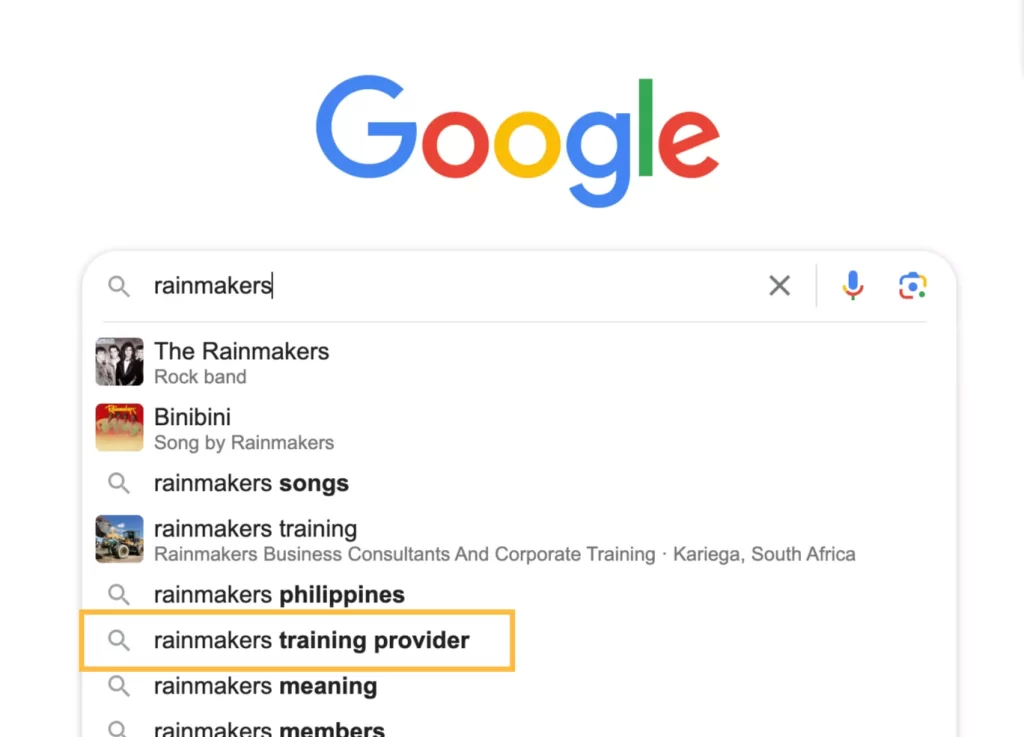
More actionable tips:
- Assess customer sentiments and identify specific words and phrases they associate with your product/s.
- Never miss opportunities to gain brand mentions – even if they’re unlinked. These unlinked brand mentions can drive more branded searches. Searches may include keywords that could associate with your brand – and could be picked up by Google easily, helping your website pages to rank higher for non-branded keywords.
- Invest in viral marketing to build brand awareness. Leverage search-driven social media platforms like Youtube and Tiktok to increase product searches through audience-first marketing campaigns.
- Create content assets that push your brand’s benefits and results (through customer testimonials) on social media to increase branded and organic searches on the platforms.
- Invite niche influencers to review your products through their native content. See one series of campaigns we did for our coffee shop that drove several weekly store visits.
5. Buy Publisher Websites with Relevant Targeted Communities
If you can’t beat them, buy them.
Interestingly, many publisher websites amass thousands, if not millions, of traffic from search. They have built a community of targeted audiences that’s been generating revenue only through ads and affiliates.
If you’re a software, you could consider investing in the websites by buying them directly as part of your company’s web properties.
The leverage of this approach is you’ll eventually absorb targeted followers who could directly purchase the product you’re selling from the site itself.
More actionable tips:
- Attend industry conferences in digital marketing and start networking with people. Some may own publishers’ sites that align with your target audience, which you could invest in.
- If you have no budget for acquiring sites, you may look for the tools, templates, and community strategies the publisher site is currently using and try to replicate or even beat their content strategy. You want to gain bigger market share in your industry by ranking for multiple keywords, which skyrockets your entire site’s organic traffic.
Wrapping Up
Investing in link building campaigns is a no-brainer for industries with a competitive search landscape. The key to getting ROI from it is to utilize product-led link building campaigns that directly impact sales and branding of our clients’ offers.
Following these tips will set you on a path to attracting more awareness and valuable links to your products and assist your site in getting its market search share.
Written By
Venchito Tampon
CEO and Co-Founder at SharpRocket, a link building agency. With a decade of experience, Venchito has a proven track record of leading hundreds of successful SEO (link builidng) campaigns across competitive industries like finance, B2B, legal, and SaaS. His expert advice as a link building expert has been featured in renowned publications such as Semrush, Ahrefs, Huffington Post and Forbes. He is also an international SEO spoken and has delivered talks in SEO Zraz, Asia Pacific Affiliate Summit in Singapore, and Search Marketing Summit in Sydney, Australia. Check out his other business - Hills & Valleys Cafe.
Reviewed By

Sef Gojo Cruz
COO at SharpRocket, overseeing end-to-end operations, from crafting link building strategies to leading high-performing teams. Previously led SEO initiatives at Workhouse, a digital agency in Australia, and Keymedia, a real estate media company based in New Zealand.
How our LINK BUILDING AGENCY in UK builds 250 links/mo consistently using Predictable Link Building Methodology™…
- Using a SIMPLE and PROVEN system
- Using a SCALABLE strategy
- No private blog networks
- No creepy outreach emails
